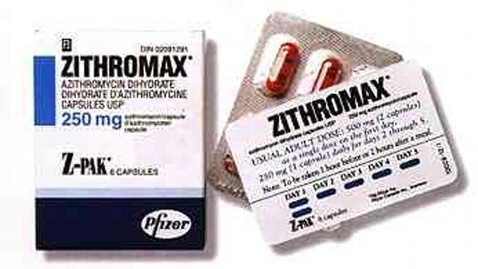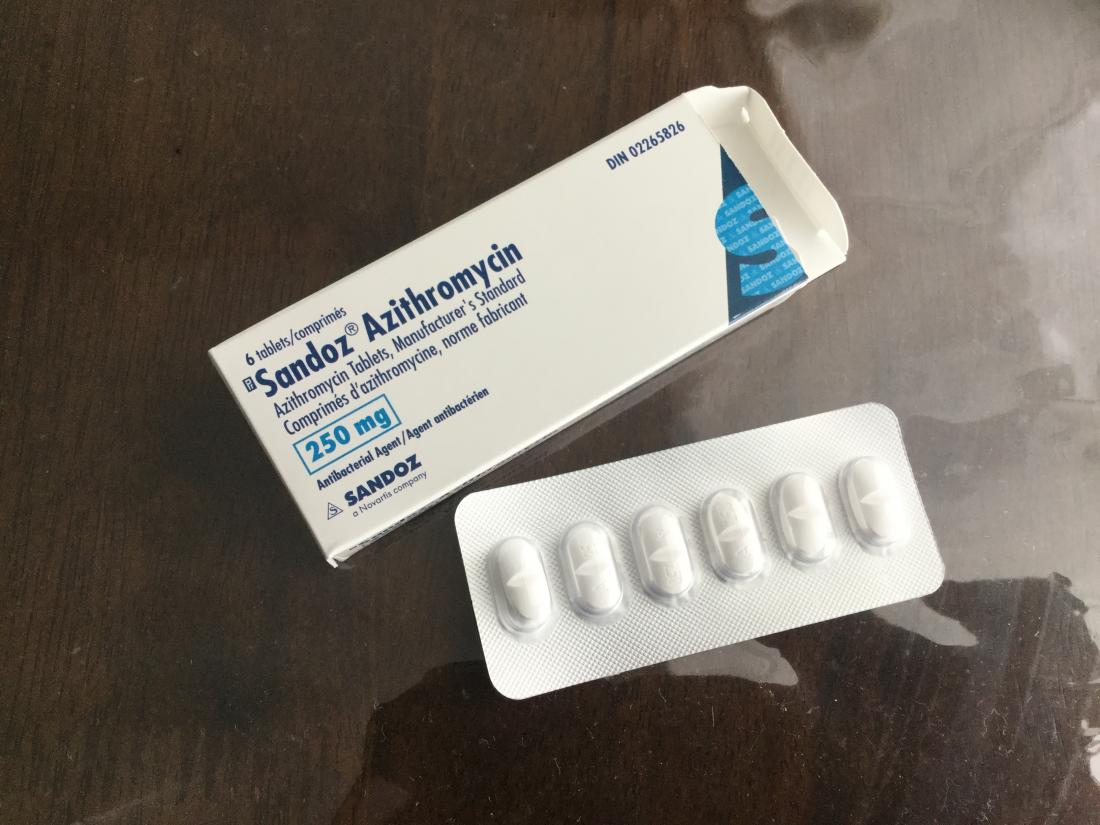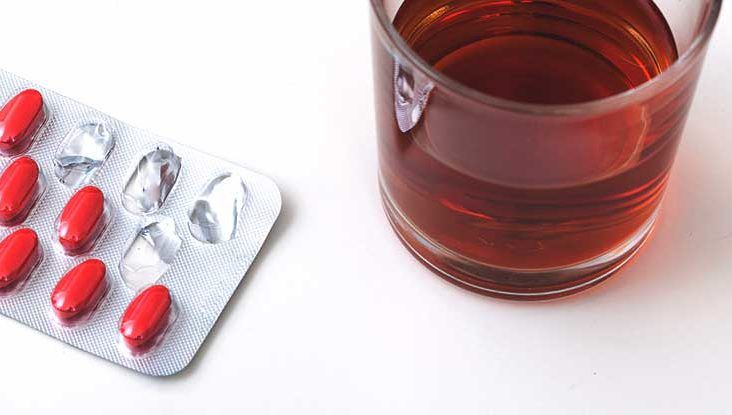What Is Z Pack

Z Pack, also known as the Z-Pak, is a common brand name for the antibiotic azithromycin. It is a type of macrolide antibiotic that is used to treat a variety of bacterial infections, such as respiratory infections, skin infections, and sexually transmitted infections. Z Pack works by stopping the growth of bacteria in the body, helping to relieve symptoms and speed up recovery. It is usually taken orally and comes in a convenient package with a specific dosage regimen.
Overview And Usage
Z Pack, also known as the Z-Pak, is a commonly prescribed antibiotic used to treat a range of bacterial infections. It belongs to the macrolide antibiotic class and works by inhibiting the growth of bacteria in the body. Z Pack is typically taken orally and comes in a convenient package with a specific dosage regimen. It is commonly used to treat respiratory infections, skin infections, and sexually transmitted infections. It is important to follow the prescribed dosage and complete the full course of treatment for maximum effectiveness.
What Is Z Pack Antibiotic
Z Pack, also known as the Z-Pak, is a commonly prescribed antibiotic medication. It is a brand name for azithromycin, which belongs to the macrolide antibiotic class. Z Pack is often used to treat a wide range of bacterial infections, including respiratory infections, skin infections, and sexually transmitted infections. It works by inhibiting the growth of bacteria in the body, helping to alleviate symptoms and promote healing. It is important to follow the prescribed dosage and complete the full course of treatment to ensure effectiveness.
How Z Pack Works In The Body

Z Pack, or azithromycin, works in the body by inhibiting the growth of bacteria. It does this by binding to the bacterial ribosomes, which are responsible for producing proteins necessary for bacterial survival. By binding to the ribosomes, Z Pack prevents the bacteria from producing essential proteins, effectively halting their growth and replication. This allows the body’s immune system to more effectively fight off the infection. It is important to take Z Pack as prescribed and complete the full course of treatment to ensure the bacteria are fully eradicated.
Effects Of Alcohol On Z Pack
When alcohol is consumed while taking Z Pack (azithromycin), it can have several negative effects on the effectiveness of the medication. Alcohol can interfere with the body’s ability to metabolize and absorb the medication, resulting in reduced effectiveness in treating bacterial infections. Additionally, alcohol consumption can weaken the immune system, which is counterproductive when trying to fight off infections with the help of azithromycin. Therefore, it is important to avoid alcohol while taking Z Pack to ensure optimal results in treating the infection.
Interactions Between Alcohol And Z Pack
There are potential interactions between alcohol and Z Pack (azithromycin). While there are no known direct interactions between the two, it is generally not recommended to consume alcohol while taking antibiotics. Alcohol can interfere with the body’s ability to metabolize and absorb the medication, reducing its effectiveness in treating bacterial infections. Additionally, alcohol weakens the immune system, which is counterproductive when trying to fight off infections. To ensure optimal results in treating the infection, it is important to avoid alcohol while taking Z Pack.
How Alcohol Affects Z Pack Efficacy

Alcohol can significantly affect the efficacy of Z Pack (azithromycin). When alcohol is consumed while taking Z Pack, it can interfere with the body’s ability to properly metabolize and absorb the medication. This can lead to a reduced effectiveness of Z Pack in treating bacterial infections. Additionally, alcohol weakens the immune system, making it less able to effectively fight off infections. To ensure optimal results in treating infections, it is important to avoid alcohol while taking Z Pack.
Risks And Side Effects
Combining alcohol with Z Pack (azithromycin) can pose several risks and lead to adverse side effects. Both alcohol and azithromycin can cause gastrointestinal symptoms such as stomach upset, nausea, vomiting, abdominal pain, and diarrhea. When taken together, the likelihood and severity of these side effects may increase. Additionally, alcohol weakens the immune system, making it less effective in fighting off infections. It is important to be aware of these potential risks and side effects in order to make informed decisions about alcohol consumption while on Z Pack.
Common Side Effects Of Z Pack
Some common side effects of Z Pack include stomach upset, nausea, vomiting, diarrhea, and abdominal pain. These gastrointestinal symptoms are typically mild and go away on their own after completing the course of medication. Other possible side effects may include headache, dizziness, fatigue, and allergic reactions such as rash or itching. It is important to consult a healthcare professional if these side effects persist or worsen.
Potential Risks Of Mixing Alcohol With Z Pack
Mixing alcohol with Z Pack can increase the risk of certain side effects and decrease the effectiveness of the medication. Alcohol can interfere with the body’s ability to metabolize and absorb Z Pack, potentially reducing its ability to treat the bacterial infection it was prescribed for. Additionally, alcohol consumption can weaken the immune system, counteracting the effects of Z Pack in fighting off infections. It is important to avoid alcohol while taking Z Pack to ensure the medication works effectively and to minimize the risk of complications.
Importance Of Avoiding Alcohol With Z Pack

It is crucial to avoid consuming alcohol while taking Z Pack or azithromycin. Mixing alcohol with Z Pack can negatively affect the effectiveness of the medication and increase the risk of side effects. Alcohol can interfere with the body’s ability to metabolize and absorb Z Pack, potentially reducing its ability to treat bacterial infections. Additionally, alcohol weakens the immune system, which counteracts the effects of Z Pack in fighting off infections. To ensure the medication works effectively and minimize complications, it is important to abstain from alcohol while on Z Pack.
Reasons To Avoid Alcohol While On Z Pack
Consuming alcohol while on Z Pack is strongly discouraged for several reasons. Firstly, alcohol can interfere with the effectiveness of the medication, reducing its ability to treat bacterial infections. Secondly, alcohol weakens the immune system, counteracting the effects of Z Pack in fighting off infections. Additionally, combining alcohol with Z Pack can increase the risk of side effects such as headache and liver damage. To ensure the successful treatment of infections and minimize potential complications, it is essential to abstain from alcohol while taking Z Pack.
Consequences Of Ignoring Alcohol Z Pack Interaction
Ignoring the interaction between alcohol and Z Pack can have serious consequences. Firstly, alcohol can reduce the effectiveness of the medication, leading to prolonged or ineffective treatment of bacterial infections. Secondly, alcohol weakens the immune system, making it harder for the body to fight off infections. Additionally, combining alcohol with Z Pack can increase the risk of experiencing side effects such as headaches and liver damage. It is imperative to prioritize the successful treatment of infections and avoid alcohol to minimize these potential complications.
Alternative Options And Recommendations

When alcohol should be avoided while taking Z Pack, it is important to consider alternative treatment options and recommendations. Here are some suggestions:
- Discuss with your healthcare provider: Consult with your doctor or pharmacist about alternative antibiotics that do not interact with alcohol.
- Follow treatment instructions: Stick to the prescribed treatment plan and complete the full course of antibiotics to ensure effective treatment.
- Practice good hygiene: Maintain proper hygiene to prevent the spread of infections and reduce the need for antibiotics.
- Support your immune system: Boost your immune system with a healthy diet, regular exercise, and adequate rest to help your body fight off infections naturally.
- Seek medical attention if needed: If symptoms persist or worsen, seek medical advice to explore other treatment options that are compatible with alcohol consumption.
By considering these alternative options and recommendations, individuals can prioritize their health while managing bacterial infections effectively.
Possible Alternatives To Z Pack
When alcohol should be avoided while taking Z Pack, it is important to consider alternative treatment options. Some possible alternatives to Z Pack include antibiotics such as cephalexin, cefdinir, doxycycline, nitrofurantoin, erythromycin, penicillin, and amoxicillin. These antibiotics have no known interactions with alcohol and can effectively treat various bacterial infections. However, it is crucial to consult with a healthcare provider before switching medications to ensure the most appropriate alternative is chosen for each individual case.
Tips For Managing Infections Without Alcohol Interactions
To effectively manage infections without the risk of alcohol interactions, there are several tips to keep in mind:
- Follow the prescribed antibiotic regimen: Take the medication exactly as directed by the healthcare provider to ensure optimal effectiveness.
- Avoid alcohol consumption: It is crucial to refrain from drinking alcohol while on antibiotics as it can interfere with the medication’s efficacy and potentially worsen side effects.
- Maintain a healthy lifestyle: Adopting a nutritious diet, getting enough sleep, and staying hydrated can help boost the immune system and support the body’s natural healing process.
- Practice proper hygiene: Wash hands regularly, avoid close contact with individuals who are sick, and cover the mouth and nose when coughing or sneezing to prevent the spread of infection.
- Seek medical advice: If experiencing any unusual symptoms or concerns, consult a healthcare provider for proper diagnosis and alternative treatment options.
By following these tips, individuals can effectively manage their infections without the potential risks associated with alcohol interactions.
Conclusion And Precautionary Measures

In conclusion, it is crucial to avoid consuming alcohol while taking Z Pack or any other antibiotics. Alcohol can interfere with the effectiveness of the medication and potentially worsen side effects. It is important to follow the prescribed antibiotic regimen, maintain a healthy lifestyle, practice proper hygiene, and seek medical advice if necessary. By taking these precautionary measures, individuals can effectively manage their infections without the risks associated with alcohol interactions.
Summary Of Z Pack And Alcohol Interaction
The interaction between Z Pack (azithromycin) and alcohol is not well documented. While there are no known direct interactions between the two, it is generally advised to avoid alcohol while taking antibiotics. Alcohol can potentially interfere with the effectiveness of the medication and may worsen side effects. It is important to prioritize healing and allow the body to recover by abstaining from alcohol during antibiotic treatment. Following the prescribed regimen, maintaining a healthy lifestyle, and seeking medical advice if necessary are crucial for managing infections effectively.
Precautionary Measures For Using Antibiotics With Alcohol
When taking antibiotics, it is important to exercise caution and avoid alcohol consumption. Here are some precautionary measures to follow:
- Read the medication label: Always read the label or consult with the healthcare provider to see if there are any specific instructions regarding alcohol consumption while taking the antibiotic.
- Talk to your healthcare provider: If you are unsure about whether it is safe to consume alcohol while on antibiotics, consult your healthcare provider for guidance.
- Complete the full course of antibiotics: It is essential to complete the prescribed course of antibiotics without interruption. Alcohol can potentially interfere with the effectiveness of the medication, so it is best to avoid it.
- Stay hydrated: Drinking plenty of water can help flush out toxins and support your body’s natural healing process. Alcohol can dehydrate the body, so avoiding it can help maintain proper hydration levels.
- Follow a healthy lifestyle: Supporting your immune system through a healthy lifestyle, including proper nutrition, sleep, and exercise, can aid in a faster recovery process.
By following these precautionary measures, you can minimize any potential risks and ensure the effectiveness of the antibiotic treatment.
FAQ About Z Pack And Alcohol: Understanding Antibiotic Interactions
Q: What is Z Pack?
A: Z Pack is a common term for the antibiotic azithromycin, often prescribed to treat bacterial infections like sinusitis, pneumonia, bronchitis, and more.
Q: Can I drink alcohol while taking Z Pack?
A: It is generally recommended to avoid consuming alcohol while taking Z Pack. Alcohol can potentially decrease the effectiveness of the antibiotic and increase the risk of side effects.
Q: What are the risks of combining Z Pack with alcohol?
A: Mixing Z Pack with alcohol can lead to increased side effects such as nausea, vomiting, stomach cramps, headache, and dizziness. It may also prolong the recovery process from the infection.
Q: How long should I wait to drink alcohol after finishing a Z Pack course?
A: It’s advisable to wait at least 48 hours after finishing the Z Pack course before consuming alcohol. This allows the antibiotic to fully leave your system and reduce the risk of interactions.
Q: Are there any alternative antibiotics that are safe to take with alcohol?
A: Some antibiotics have fewer interactions with alcohol, but it is always best to consult with a healthcare provider before combining any antibiotics with alcohol to ensure safety and effectiveness.
Q: What should I do if I accidentally drank alcohol while taking Z Pack?
A: If you inadvertently consumed alcohol while on Z Pack, monitor yourself for any unusual symptoms and contact your healthcare provider if you experience any concerning side effects or reactions.
